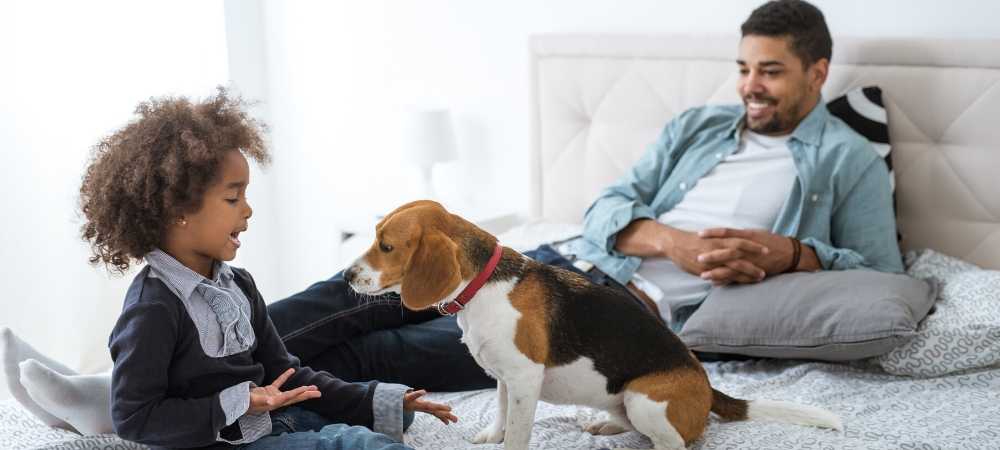Understanding the New CDC Guidelines on Pets & Coronavirus

Last Updated: May 5, 2020
Recently, the CDC released a new set of guidelines for social distancing for both you and your pet. They recommend not letting dogs, cats, and furry friends in general interact with people or other animals from outside the household. This can be tricky to navigate for pet owners who live in apartment complexes or densely populated areas, and those who depend on daily walks for their pets activity and potty breaks. We’re here to help you understand how the new CDC guidelines can and should be part of your daily routine:
- First things first, don’t panic. There is still no evidence to suggest that animals can spread the virus to humans, or other animals. That said, it’s a good idea to practice good hygiene habits around pets and other animals.
- Keep your dog on a tight leash during walks. Avoid off-leash walking, or retractable leashes that let your dog wander more than a few feet.
- Steer clear of other pets and people. Not everyone is aware of the guidelines for pets, and people may try to approach your dog for a pet. Try crossing the street or changing direction to avoid close contact.
- Avoid crowded areas and busy walking routes. Like dog parks and popular trails. Look for other areas that aren’t typically dog places to walk, like empty parking lots.
- Switch up your walk times. Try leaving a little earlier or later to avoid the “rush hour” for morning and evening walkers.
- Keep disinfectant wipes handy. Wipe your dog’s coat and paws thoroughly before they enter your home with pet friendly wipes, or nontoxic soap and water. (And don’t forget to wash yours, too!)
- Keep cats indoors. Create a hideaway space for your cat inside where they can go and retreat if the household gets busy.
- Try at home exercise and enrichment. There’s lots of ways you can keep your pet exercised and entertained while at home. Check out these 6 Indoor Activities You Can Do With Your Pet
- What about pet masks? They look cute, we won’t argue that – but experts say they may not protect your pet from disease transmission and could even cause other breathing difficulties.
And what should you do if you become sick with COVID-19 and have pets?
- When possible, have another member of your household care for your pets while you are sick.
- Avoid contact with your pet, including petting, snuggling, being kissed or licked, and sharing food or bedding.
- If you must care for your pet or be around animals while you are sick, wear a cloth face covering and wash your hands before and after you interact with them.
- If a person inside the household is sick, isolate that person from everyone else, including pets.
For more information on pets and COVID-19, visit COVID-19 Information and Resources



